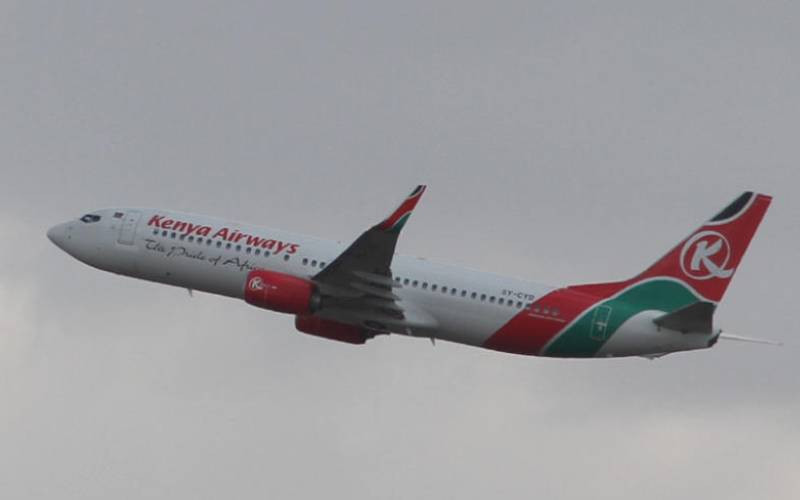When Vodafone Group Plc transferred 35 per cent of its shares to Johannesburg based Vodacom Group Ltd, news spread that the Government was selling its stake in Safaricom. Prior to clarification, Kenyans were up in arms over ‘government’s sale’ of the most profitable firm.
Such reactions shows the underbelly of how privatisation is viewed by the wider public. The government had huge presence in business until the 90’s when donors pushed for State exit from running businesses. According to Henry Bruton and Catharine Hill in a World Bank paper on privatisation, by 1995, there were 240 public enterprises cutting across all sectors of the economy. Of these, the government directly owned 51; in 36 the government had controlling shares and in 153 the government owned shares through holding companies.
After 188 transaction involving sale of shares, sale of asset, equity swaps and other methods of divesting, the State was left with a handful of fully owned corporations including sugar mills, hotels and a few banks. However, recent moves by Treasury indicate an increased appetite in privatisation policy with the government re-investing in corporations it had divested from a decade ago.
The State’s move to ramp up stake in State corporations where it had previously divested including Kenya Airways (KQ), Kenya Commercial Bank’s acquisition deal of National Bank and Telkom makes it one of the major shareholders.
“The privatisation policy where the government sells shares to the private sector - reducing its stake is not cast in stone, it is adjustable. But the overall policy is that the government reduces its stake eventually,” Dr Gerishon Ikiara, Senior Lecturer of International Economics at the University of Nairobi and a former Permanent Secretary in the Ministry ofTransport and communications said. The biggest reversal of privatisation policy is likely to be with Kenya Airways which had been touted as the best example of Kenya’s privatisation journey, and which has gone awfully down the rabbit hole. Proponents of privatisation push the strategy in belief that it leads to an improvement in the firm’s net worth through efficiency improvement.
It reduces the stock of debts by using the sale proceeds to retire debts, increase liquidity through sale proceeds and tax flows, which leads to an overall reduction in budgetary requirements and hence reduction in the budget deficit.
It also reduces the burden on the exchequer to subsidise the enterprise in addition to reducing the need to borrow by the same magnitude.
But with Kenya having to convert its Sh25 billion ($243 million) debt to equity and guaranteeing Sh77 billion ($745 million) of the airline’s debt to lenders and domestic banks, moves Treasury’s stake to about 40 per cent .
This shows privatisation has not met its objectives. “The major question raised is whether those firms, once privatised, have performed better than their public counterparts and whether they have made significant contributions to the exchequer,” Samuel Oyieke in a research paper called Kenya Airways: A case study of privatisation at University of Eastern Africa Baraton notes.
When it was privatised in 1995 Kenya, Airways was dubbed as the largest single offer at the Nairobi Securities Exchange with sale proceeds in excess of Sh4 billion in cash. International Finance Corporation successfully advised the Government on KQ’s privatisation.
After selling 26 percent of the airline to a strategic partner, the frequency of the airline’s flights grew by 61 per cent in six years, developing Nairobi into a regional hub. But two decades later, in 2015, the national carrier hit a record Sh25.7 billion loss after tax followed in the next year with a Sh26.2 billion loss both record level loses in Kenya’s corporate history after a disastrous expansion binge. But as a strategic asset, in a region where Ethiopia Airlines was expanding and RwandAir expanding across the region the government’s hand was forced to intervene.
“The State is ramping up its position not as a matter of choice. Kenya Airways is as clear a national interest issue as any. The Others are not and I think the government has gone overboard in essentially giving badly run Parastatals a put option,” Aly Khan-Satchu, CEO of Rich Management said. “And this risks an endless Groundhog Day - a traditional holiday originating in the United States that is celebrated in February.”
National carrier
KQ then asked for a Sh60.6 billion ($500-600 million) bailout, after which Henry Rotich, Treasury Cabinet Secretary gave the carrier Sh4.2 billion in 2015 and Sh20.2 billion last year.
This is now being converted into additional shareholding. “I think for KQ, it was the desire to help the national airline recover with more resources instead of a loan so they decided on an equity deal where the government buys more shares to provide money for the airline to operate profitably,” Dr Ikiara said.
Stay informed. Subscribe to our newsletter
“I think for KQ, it was the desire to help the national airline recover with more resources instead of a loan so they decided on an equity deal where the government buys more shares to provide money for the airline to operate profitably,” Dr Ikiara said. It is now being converted into additional shareholding. “I think for KQ, it was the desire to help the national airline recover, with more resources instead of a loan so they decided on an equity deal where the government buys more shares to provide money for the airline to operate profitably,” Dr Ikiara said.
Treasury did not respond to our question on whether the recent moves point to a change of thinking in government about the fundamental problem of privatisation. However, with the Privatisation Commission having been unable to help divest sugar mills, State hotels and the three banks - National Bank of Kenya, Consolidated and Development Bank, the government must be reassessing its push to play limited role in business.
This, especially under the Jubilee government has seen increase in government guarantees and bailouts.
When Uchumi Supermarket faced financial problems, Treasury offered a shareholder loan of Sh1.8 billion. In fact after the approval of the Sh77 billion guarantee of Kenya Airways loan, the State’s indirect debt may stand at a whooping Sh383 billion with significant amount of the undisclosed debt being guarantees to the energy sector in the last 10 years through public private partnership deals.
Over 12 power purchase agreement contracts are said to be worth $3.1 billion (Sh310 billion) , the hugest chunk of this unreported debt. Mr Satchu however rooted for privatisation despite indications of a change in government attitudes. “We need to embrace the privatisation program again and aggressively, Its been a major downside. The IPO programme got government out of running businesses which they are not good at everywhere in the World created ownership and its about time the GOK got back with the programme,” he said.
 The Standard Group Plc is a
multi-media organization with investments in media platforms spanning newspaper
print operations, television, radio broadcasting, digital and online services. The
Standard Group is recognized as a leading multi-media house in Kenya with a key
influence in matters of national and international interest.
The Standard Group Plc is a
multi-media organization with investments in media platforms spanning newspaper
print operations, television, radio broadcasting, digital and online services. The
Standard Group is recognized as a leading multi-media house in Kenya with a key
influence in matters of national and international interest.
 The Standard Group Plc is a
multi-media organization with investments in media platforms spanning newspaper
print operations, television, radio broadcasting, digital and online services. The
Standard Group is recognized as a leading multi-media house in Kenya with a key
influence in matters of national and international interest.
The Standard Group Plc is a
multi-media organization with investments in media platforms spanning newspaper
print operations, television, radio broadcasting, digital and online services. The
Standard Group is recognized as a leading multi-media house in Kenya with a key
influence in matters of national and international interest.









